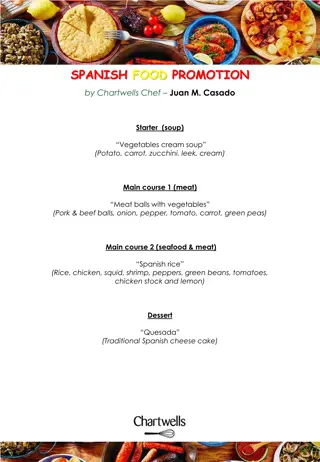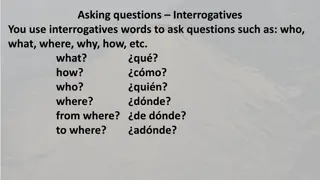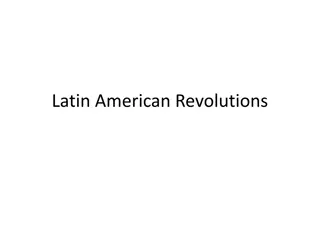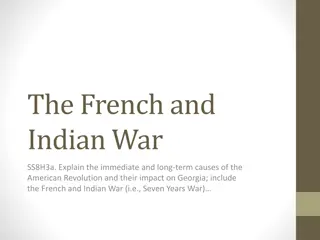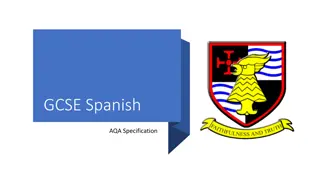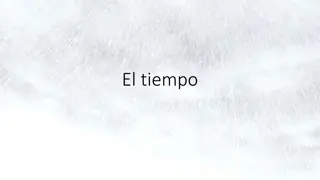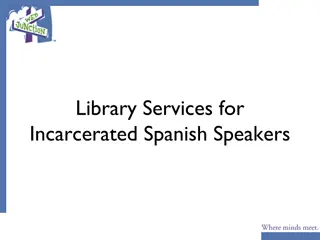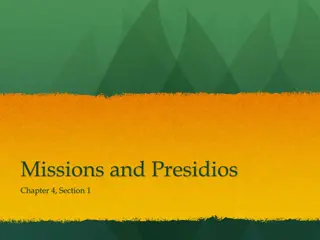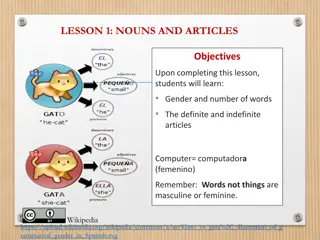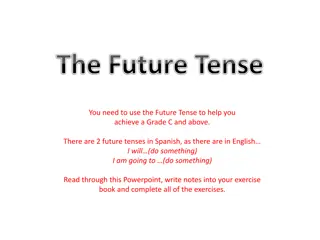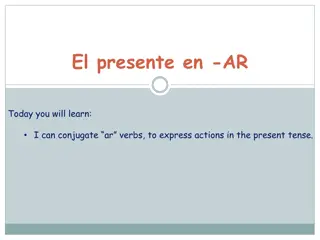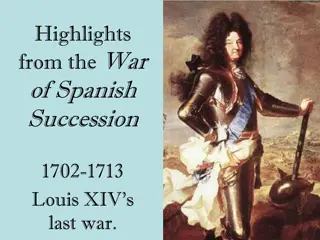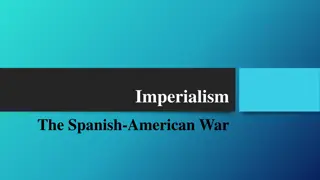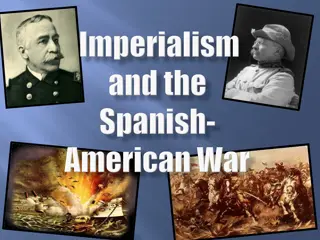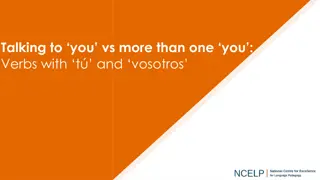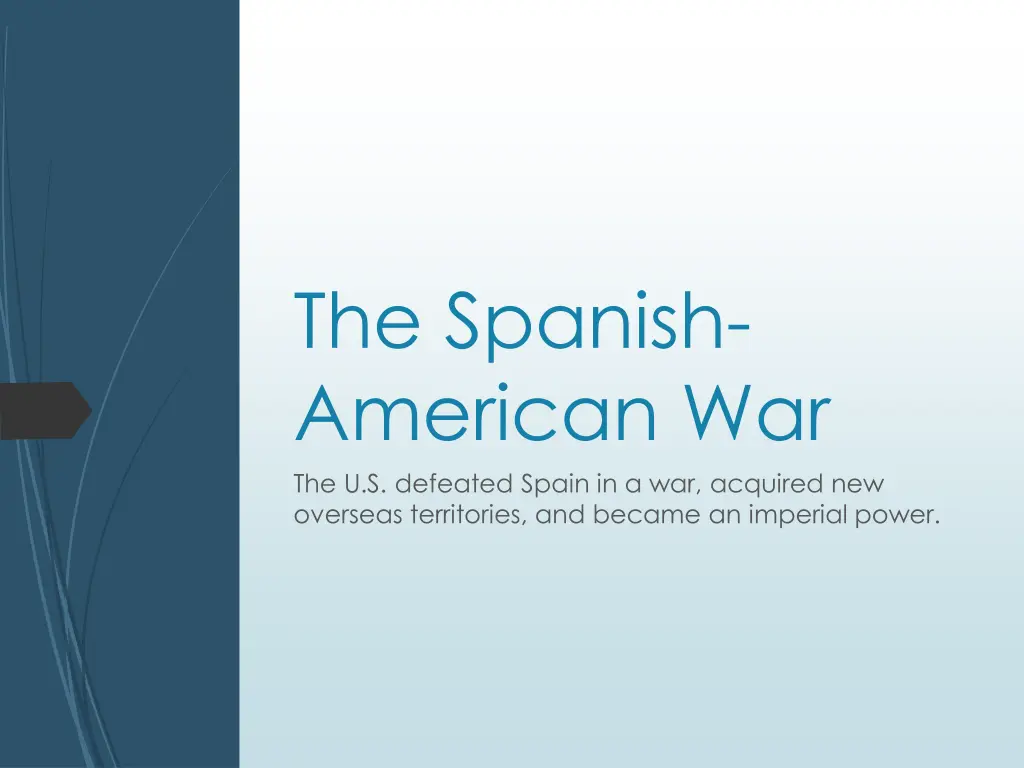
Spanish-American War: U.S. Triumph, Imperial Expansion, and Overseas Territories
The Spanish-American War marked a turning point as the U.S. emerged victorious, acquiring new overseas territories and becoming an imperial power. The conflict stemmed from the Cuban rebellion against Spanish rule, culminating in the USS Maine explosion and subsequent U.S. intervention. With support for Cuba, sensationalized by yellow journalism, the U.S. declared war on Spain, leading to pivotal battles in Cuba and the Philippines. Explore how this conflict reshaped global power dynamics in the late 19th century.
Download Presentation

Please find below an Image/Link to download the presentation.
The content on the website is provided AS IS for your information and personal use only. It may not be sold, licensed, or shared on other websites without obtaining consent from the author. If you encounter any issues during the download, it is possible that the publisher has removed the file from their server.
You are allowed to download the files provided on this website for personal or commercial use, subject to the condition that they are used lawfully. All files are the property of their respective owners.
The content on the website is provided AS IS for your information and personal use only. It may not be sold, licensed, or shared on other websites without obtaining consent from the author.
E N D
Presentation Transcript
The Spanish- American War The U.S. defeated Spain in a war, acquired new overseas territories, and became an imperial power.
February 15, 1898-354 officers and sailors aboard the battleship Maine, in Havana Harbor, Cuba. 266 died in explosion. The size of the explosion indicates that the ship s ammunition supplies blew up. Some experts think that a fire accidentally ignited the ammunition others say that a mine detonated near the ship. Many Americans blamed Spain. Cuba was a Spanish colony. Cubans were fighting for independence and Americans backed them up. The U.S. and Spain went to war, and it lasted only a few months, but the U.S. victory made the United States a WORLD POWER. The Maine
The Cuban Rebellion Cuba s sugar plantations generated much wealth for Spain and produced one-third of the world s sugar. Until 1886-one-third of the Cuban population was enslaved and forced to work for wealthy landowners. 1886-Cuban rebels revolted. 1888-rebellion collapsed and many Cubans fled to the U.S. Jose Marti-Cuban writer and poet. Moved to NY and was committed to the cause of independence. He raised funds from Americans, purchased weapons, and trained troops to invade Cuba. By the 1890s-Cuba and the U.S. were closely linked economically. Cuba exported sugar and Americans had invested $50 million in mines, railroads, and sugar. The U.S. later imposed tariffs that hurt Cuba and devastated their economy. Marti s followers seized control of eastern Cuba and established the Republic of Cuba in September 1895.
America supports Cuba President Cleveland declared the U.S. neutral. Americans were sympathetic. William Randolph Hearst, Joseph Pulitzer-two newspaper owners who wrote dramatic stories of Spanish atrocities. Yellow journalism-sensational reporting in which writers often exaggerated or even made up stories to attract readers. Spain sent 200,000 troops in. Cuba responded with a guerrilla war. Spain then put Cubans in concentration camps where thousands died of starvation and disease. 1897-Pres. McKinley did not want to intervene and asked to help negotiate. But, warned that if war did not end soon the U.S. would intervene. Spain offered Cuba autonomy, but to remain part of the Spanish empire. The Cubans refused. McKinley sent the Maine to evacuate Americans. McKinley was under pressure to do something. Theodore Roosevelt-was enraged. Jingoism-attitude of aggressive nationalism. April 19-Congress declared Cuba independent. April 24-Spain declared war on the U.S.
Spain and Cuba were weak from years of fighting. The victor would be decided at sea. Philippines were a Spanish colony. The U.S. was ready to attack the Spanish there and in Cuba. (British Hong Kong-used for base) Commodore George Dewey defeated Spanish navy immediately. The U.S. sent 20,000 troops to the Philippines. On their way, the took Guam. The troops seized Manila, the capital, and the Filipinos became suspicious. Hostility grew. Two-front War June 14, 1898, 17,000 troops landed on southern coast of Cuba. Rough Riders-calvary unit from the West, cowboys, miners, and law officers. Led by Colonel Leonard Wood. Second in command was Theodore Roosevelt. Rough Riders seized Kettle Hill and San Juan Hill. All-black 9th and 10th Cavalry Regiments accompanied them. One- fourth of the American troops fighting in Cuba were African American. Spanish ships attempted to leave the harbor, but American warships sunk or beached every Spanish vessel! August 12, 1898-Spain and the U.S. agreed to a cease-fire.
What to do with new lands? Cuba-would be given freedom. U.S. would annex Guam and Puerto Rico. Philippines question???? To annex or not to annex. American Empire Surely this Spanish war has not been a grab for empire, but a heroic effort to free the oppressed, and to teach the millions of ignorant, debased human beings thus freed how to live. President McKinley decided to annex the Philippines. Dec. 10, 1898-Treaty of Paris signed. U.S. paid Spain $20 million. The Filipinos put up a fight, but in 1902 the U.S. declared the war over. 1946-the U.S. granted independence to the Philippines.
Platt Amendment The U.S. established a military govt. in Cuba. McKinley allowed Cubans to write their own constitution, but attached the Platt Amendment. It stated: 1. No treaties with other nations. 2. Have to allow the U.S. to buy or lease naval stations 3. Debt had to be kept low 4. The U.S. would have the right to intervene to protect Cuban independence. Cuba became an American protectorate.


